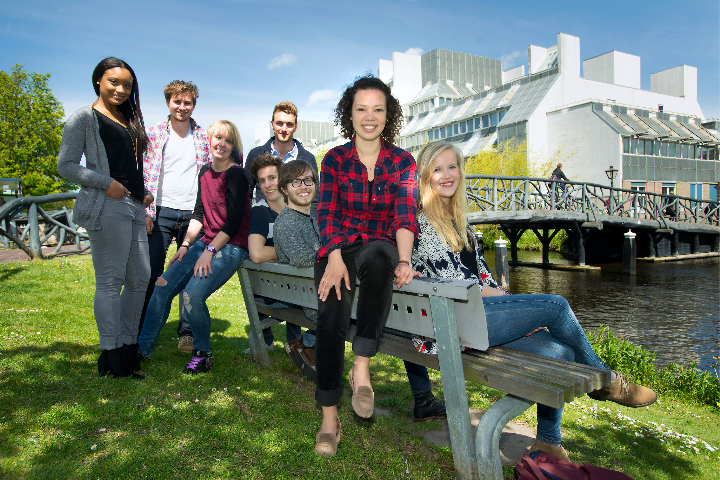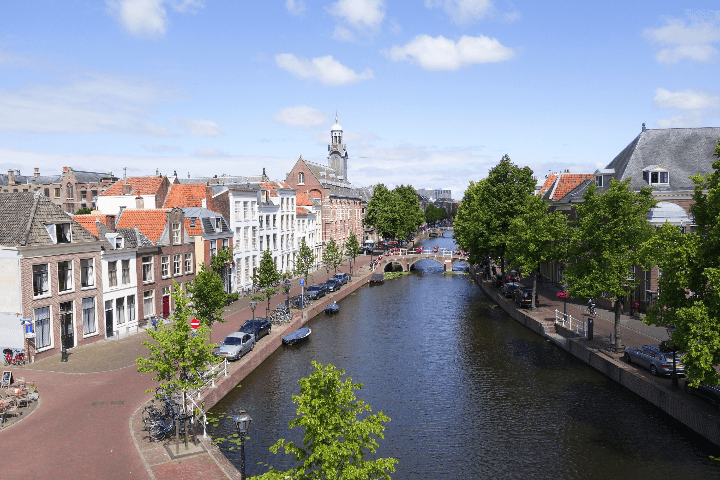Universiteit Leiden (Leiden University), the Netherlands
Leiden is one of Europe’s leading international research universities and is one of the 17 universities that comprise the League of European Research Universities (LERU). It is the oldest university in the Netherlands and is extremely well connected to the rest of the country.
Who can go?
Postgraduate taught and research students (normally at Masters level) in the Schools of Art History and History.
There is currently a limit of six semester-long placements per academic year.
The exchange is run by Art History, but is open to students in the School of History. Interested students should contact the postgraduate secretary of Art History by emailing pgarthist@st-andrews.ac.uk.
How to apply
You should request an application form from your School’s study abroad adviser. You should submit this, along with an academic reference, by the following deadlines:
- For Autumn entry: Friday of week 4 of the previous Spring semester.
- For Spring entry: Friday of week 4 of the previous Autumn semester.
After you apply, you may be interviewed by your School and the Study Abroad team.
If you are selected to participate in the exchange, St Andrews will nominate you to Leiden. You will be required to complete Leiden’s application for admission process.
Current students can contact Study Abroad Advisers to find out more.
Your studies
Before arriving at the University of Leiden, you will discuss and get approval for your module choices from your School’s study abroad adviser. If any changes to your module choices are necessary after you have arrived at Leiden, you must contact your study abroad adviser by email as soon as possible to get approval. Some modules are available in English.
Each academic year at Leiden is divided into two semester:
- Semester 1: early September to late October; late October to late January
- Semester 2: early February to late March; late March to late June.
Students are issued with a personal University of Leiden email address and have full access to the University network (ULCN), library facilities, computer rooms and study areas.

Passports and visas
EU citizens can study in the Netherlands without a visa or a residence permit, provided they have a valid passport. You should follow the University of Leiden’s guidance regarding visas and residence permits. Upon arrival, students must register at the Town Hall.
You should ensure that your passport is valid for the duration of your trip, and for at least six months after you return to the UK. You should scan your passport and keep a copy for your records.
If you are a European Union national, you will not require a visa and may enter the European Union countries with your passport or national identity card. Please note that you may have to comply with legal obligations, such as registering your address with the local authorities.
If you are an international student who has a visa to study in the UK, and you have any questions about the implications of studying or working abroad whilst matriculated at St Andrews, you should consult Student Services by emailing advint@st-andrews.ac.uk. You can also check the passports and visas page for further information.
About the University
The University of Leiden was founded in 1575 and is the oldest university in the Netherlands. It has around 26,900 students from over 115 nationalities.
The University is organised into seven faculties in the arts, sciences and social sciences, along with its graduate schools, research centres and research institutions.
The city of Leiden is nestled between Rotterdam, The Hague and Amsterdam, making it very accessible to travel around the Netherlands. It is a relatively small, university city with a rich cultural heritage. University buildings are scattered around the compact city, with university departments, lecture halls and pavement cafés never more than a ten-minute bicycle ride away.
The University’s library holds approximately three million books, and special collections include mediaeval manuscripts, old prints, maps and atlases, letters, photographs and materials from around the world. The University also provides access to more than 16,000 e-journals as well as hundreds of other digital collections and resources.
Leiden’s Institute for History is responsible for the main part of the historical research carried out at the university and has five main specialisations:
- the unification of the Mediterranean world
- collective identities and transnational networks in medieval and early modern Europe, 1000-1800
- political culture and national identities
- European expansion and globalisation
- migration and global interdependence.

Finance
As an exchange student, you will not pay tuition fees to your host university, and will only be liable for your normal St Andrews tuition fees.
Research Council students should make sure that they have their funding body’s permission to study abroad, notifying them particularly for any mobility grants that they may be receiving.
The University of Leiden provides information about estimated costs of living in Leiden. You will be responsible for meeting any additional costs accruing from accommodation, food, travel, etc.
Accommodation
The University of Leiden does not own student accommodation, but does mediate between exchange students and housing agencies. See the University of Leiden’s guidance on housing for international students.

Travel and transport
The nearest airports are Schiphol (Amsterdam) and Rotterdam. Alternatively, Leiden can be reached via the Stena ferry line from Harwich, England, to Hoek Van Holland followed by a 40-minute drive to central Leiden.
- From Rotterdam Airport, the airport shuttle bus runs every 10 to 20 minutes to Rotterdam Centraal train station (duration 25 to 30 minutes). Trains to Leiden take 35 minutes, and there are several per hour.
- From Schiphol Airport, direct trains depart every 10 minutes to Leiden Centraal, and the journey takes 20 minutes.
Leiden has an extensive public transport system (train, tram and bus). The purchase of an OV-chipkaart (similar to London’s Oyster card) is recommended for regular users of public transport. However, previous exchange students have advocated that the best and cheapest way to get around Leiden is by bike.
Nearby cities such as The Hague, Amsterdam, Rotterdam and Utrecht are easily reachable by train from Leiden within an hour.
Student support
You will become situated to the University of Leiden and the city during your induction as well as the introduction weeks for international students.
The University of Leiden’s Student Affairs provides information as well as personal and academic advice. They also have a dedicated international student advisor who can help international students find their way in Leiden and within the university.
The International Student Network Leiden provides support and mentoring for international students and organises social activities.
The Academic Language Centre provides acculturation classes and a range of language courses, catering for beginners to advanced students in a range of languages. Non-intensive, semi-intensive and daytime Dutch courses are available. The beginners (non-intensive) course begins in September or February and there is a fee for this programme.

Contact
Global Office
University of St Andrews
A11
Bute Building
Westburn Lane
St Andrews
KY16 9TS
Phone: +44 (0)1334 46 2245
Email: studyabroad@st-andrews.ac.uk